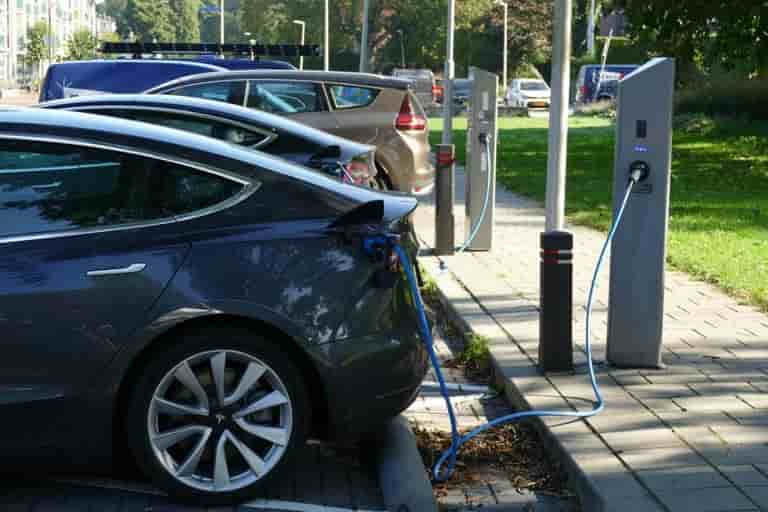Bio-based polymers
Crude Oil Prices Trend
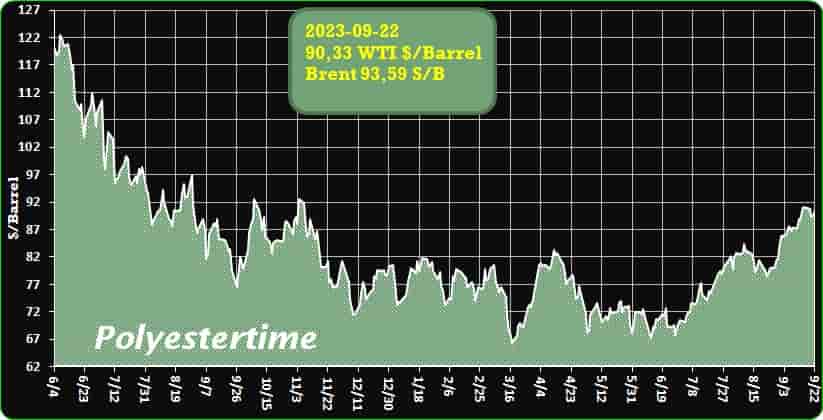
Crude Oil Prices Trend by Polyestertime
Circular Economy: TotalEnergies to Build a New Plastic Recycling Unit at the Grandpuits Zero-Crude Platform
Paris, September 20, 2023 –TotalEnergies has announced the building of a new mechanical recycling unit for plastic waste at its Grandpuits site southeast of Paris. This new investment follows those announced in June 2023 — the doubling of sustainable aviation fuel (SAF) production and construction of a biomethane production unit — in line with the Company’s ambition to develop low-carbon energy and the circular economy.
The new unit should enter service in 2026 and produce 30,000 tons a year of high value-added compounds containing up to 50% recycled plastic material.
In addition to the mechanical recycling unit, a specific center will be established that provides technical assistance to customers and develops new products, in order to provide sufficient support for the commercialization of the new range of hybrid compounds.
One year after investing in a new production line that makes high-performance recycled polypropylene for the automotive sector in its plant at Carling, the Company is now expanding its recycled polymer offering with this new unit at Grandpuits.
It will target the high-performance packaging market, in particular for pharmaceuticals and cosmetics. Bio-based polymers
“This investment is great news for the local area and represents another milestone for the zero-crude platform at Grandpuits. The investment in this plastic recycling unit is entirely consistent with the Company’s ambition to grow the circular economy and will contribute to the objective of reaching 1 million tons of circular polymers by 2030. By developing all these projects at the Grandpuits zero-crude platform, the Company can confirm it will maintain 250 jobs at the site, honoring the commitments that it made in September 2020,” said Bernard Pinatel, President, Refining & Chemicals at TotalEnergies.
Grandpuits is an ambitious project for low-carbon energy and the circular economy:
In September 2020, in line with its aim to get to net zero by 2050, TotalEnergies launched a project to convert this industrial site. Bio-based polymers
The “zero-crude” project, which will cost an estimated total of over €500 million, is based on the development of several future-oriented activities in biomass, renewables and the circular economy:
- SAF production: the biorefinery’s output capacity of 210,000 tons a year by 2025 and 285,000 tons a year by 2027 will allow the Company to keep pace with the gradual rise in EU blending mandates, set at 6% in 2030.
- Biomethane production: the biomethane unit, which will receive feedstock in the form of organic waste from the biorefinery, will prevent the emission of almost 20,000 tons of CO₂ per year. Its annual capacity of 80 gigawatt-hours (GWh) represents the average annual demand of 16,000 people.
- Advanced and mechanical recycling: with two recycling units, one for advanced recycling with capacity to treat 15,000 tons of waste a year, and another a mechanical recycling unit announced today, Grandpuits is establishing itself as a major French recycling site. Bio-based polymers
- Green electricity generation: Grandpuits is home to the largest solar farm in the Île-de-France region, equipped with a battery energy storage system. Since coming onstream in July 2023, it has been generating 31 GWh of green electricity a year, enough to supply 19,000 people. This power generation required the installation of 46,000 solar panels and adds to the 28 GWh facility built at Gargenville, west of Paris, which was launched in 2022.
More…
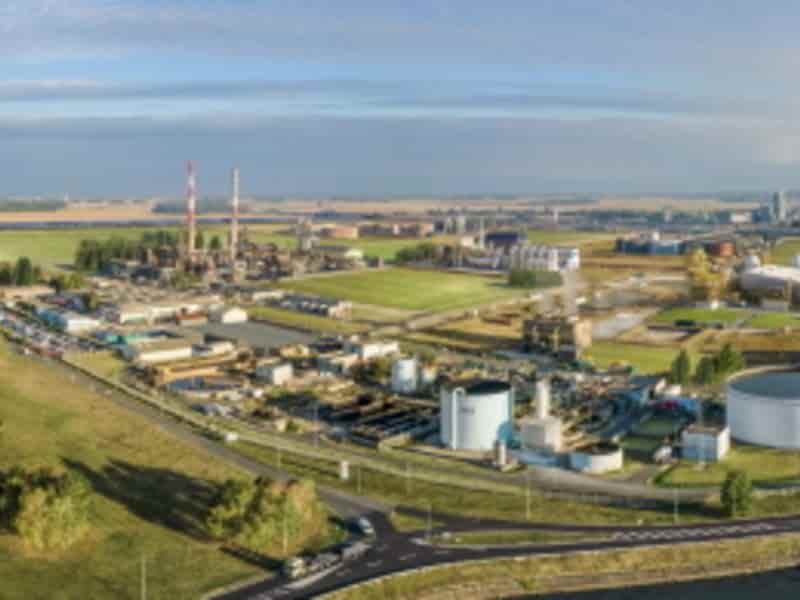
“Why is the fully continuous tire pyrolysis plant gaining increasing popularity?”
The Preferred Choice: Fully Continuous Waste Tire Pyrolysis Plant
To cater to the diverse requirements of our customers, DOING has undertaken research and development efforts, resulting in the creation of three types of tire pyrolysis plants: batch-type, semi-continuous, and fully continuous. Among these options, the fully continuous tire pyrolysis plant has witnessed a surge in popularity in recent years due to its numerous advantages:
- Enhanced Processing Capacity, Greater Profitability: The fully continuous tire pyrolysis plant boasts a significantly higher processing capacity and production efficiency. Compared to batch-type designs, the daily processing capacity of the fully continuous system typically exceeds 20 tons, with common processing capacities of 30 tons per day and 50 tons per day. As you process more waste tires, your profits increase accordingly. Bio-based polymers
- Heightened Automation and Safety: The fully continuous tire pyrolysis plant offers a remarkable level of automation, ensuring safe operations and consistent production quality. In contrast to batch designs, continuous systems feature significantly greater automation, with optional PLC control systems enabling near-continuous operation for up to two months without interruption. Furthermore, the continuous feeding and carbon black discharge processes within DOING’s fully continuous tire pyrolysis plant are executed within a fully sealed environment, mitigating the risk of safety incidents. Tire pyrolysis
- Enhanced Environmental Protection: The environmental benefits of the fully continuous tire pyrolysis plant are twofold. Firstly, it utilizes waste tires that have been pre-processed into rubber powder, reducing dust emissions caused by steel wire. The use of rubber powder as a raw material facilitates complete combustion, thus improving oil yield. Secondly, DOING’s fully continuous tire pyrolysis plant is equipped with advanced dedusting systems and desulfurization towers to purify exhaust gases, ensuring compliance with stringent emission standards. This elevated level of environmental protection sets the fully continuous tire pyrolysis plant apart. Bio-based polymers
Furthermore, many countries now impose stringent requirements on pyrolysis projects in terms of processing capacity and environmental friendliness. For instance, in countries like India, Australia, and China, newly established waste tire recycling projects are required to achieve annual outputs exceeding 20,000 tons, while renovations of existing facilities must meet a minimum output of 10,000 tons. These projects also need to adhere to strict environmental standards. The fully continuous tire pyrolysis plant effectively addresses these requirements, garnering significant support and encouragement from local governments.
If you are considering the establishment of a fully continuous tire pyrolysis plant, please don’t hesitate to contact us. Our dedicated sales managers can provide comprehensive support, ranging from local policy assessments and pyrolysis plant selection to manufacturing and shipping. We also have successful pyrolysis plant projects that you can reference. Bio-based polymers
Contact Information: WhatsApp/Tel: +86 13526692320 Email: oilmachine@wastetireoil.com Official Websites: http://www.wastetireoil.com http://continuouspyrolysisplant.com http://www.wasteoiltodieseloil.com
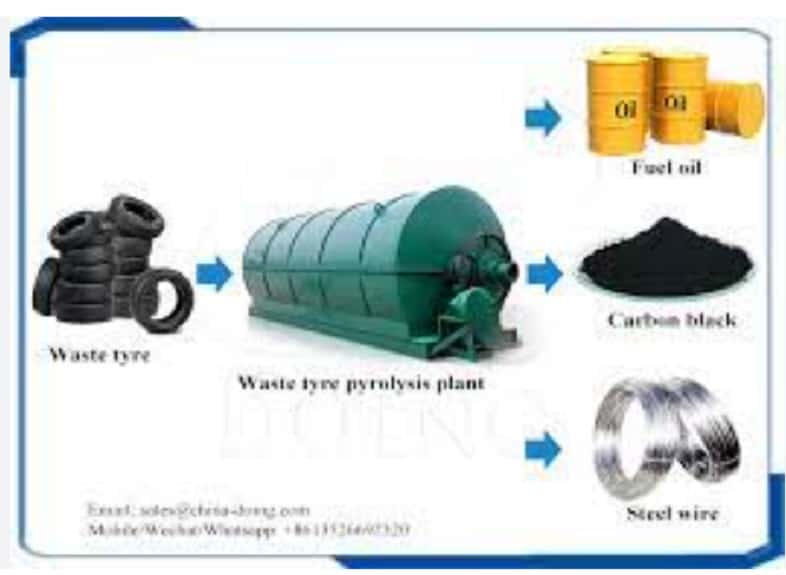
Origin Materials Awarded BioMADE Funding to Advance Department of Defense Sustainability Goals
World’s leading carbon-negative materials company to develop samples of bio-based carbon black and polymers for Department of Defense fleet decarbonization
Origin Materials, Inc. , the world’s leading carbon negative materials company with a mission to enable the world’s transition to sustainable materials, announced today that it has been awarded funding from BioMADE, a Manufacturing Innovation Institute catalyzed by the U.S. Department of Defense.
BioMADE announced a suite of projects last week that aim to aid in the advancement of Department of Defense supply chain resiliency and sustainability goals, re-shore manufacturing jobs to the United States, and enhance the domestic bioindustrial manufacturing ecosystem. Origin Materials is one of nine projects announced by BioMADE, totaling $18.7 million in funding. Bio-based polymers
As part of its project, Origin will leverage its technology platform to develop samples of bio-based polymers and bio-based carbon black, which can be used to make more sustainable tires and other products, which could support Department of Defense fleet decarbonization efforts.
“This grant reflects the strong momentum for Origin’s technology platform to help solve the greatest sustainability challenges of our time,” said Origin Materials Co-CEO Rich Riley. “We are excited that Origin has been selected to pursue this far-reaching initiative for American manufacturing.”
“These projects will help unlock the benefits of bioindustrial manufacturing for all Americans – from everyday consumers to farmers to warfighters,” said Dr. Douglas Friedman, Chief Executive Officer at BioMADE in a statement. “By creating new products and transforming how we domestically manufacture existing products, these projects – and the bioindustrial manufacturing industry at large – have the potential to positively impact nearly every aspect of our lives.” Bio-based polymers
More…
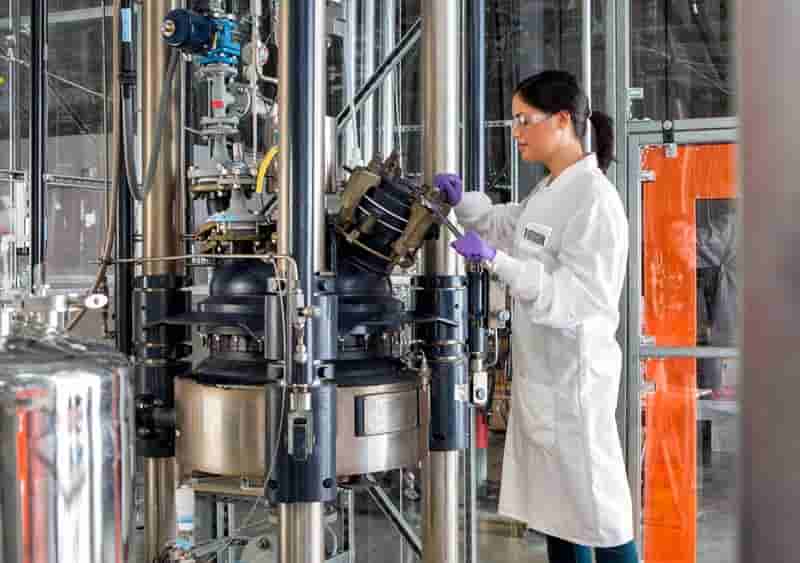
Asahi Kasei at Fakuma: Diversified Material Solutions for EV Batteries and the Circular Economy
Japanese technology company Asahi Kasei will showcase a slate of material solutions for EV batteries, improved connectivity, and lightweighting, as well as the circular economy, at the Fakuma show to be held Oct. 17 to 21 in Friedrichshafen, Germany. Asahi Kasei will exhibit in hall B5 at booth 5319.
This year, Asahi Kasei will place a special focus on its broad range of materials for lightweight, compact, and safe electric vehicle batteries. The company is currently developing a new continuous glass-fiber-reinforced thermoplastic, Lencen, and will present it for the first time at Fakuma. This composite material is formed by stacking layers of continuous glass-fiber textiles with polyamide (PA) 66 films. Due to its tensile strength, heat resistance, and impact properties similar to metal, this material improves collision safety and reduces weight in EV batteries. Bio-based polymers
In addition, the company will showcase a carbon-fiber-reinforced thermoplastic unidirectional tape (CFRTP-UD tape) that utilizes both recycled continuous carbon fiber and the company’s Leona PA resin. Boasting a higher strength than metal, this CFRTP-UD tape can be applied to automobile frames and bodies, further enabling the recycling of end-of-vehicle-life parts into different, new automobile parts.
Asahi Kasei will also showcase cooling pipes for EV battery packs made of the modified polyphenylene ether (mPPE) Xyron, as well as 2170 cell trays based on SunForce m-PPE particle foam.
Solutions for improved HMI, glass replacement
Also on show is AZP, a transparent polymer that overcomes the disadvantages of conventional optical plastic materials. Featuring a close-to-zero birefringence equivalent to glass as well as superior designability, this material reportedly allows high transmittance and low color distortion at all viewing angles. Clear images without luminance variations, color distortion, or blurring can be achieved in polarized optical equipment such as human-machine interfaces (HMIs), AR/VR headsets, and head-up-displays (HUDs). A premium quality appearance is also maintained when looking at the display through polarized sunglasses. Bio-based polymers
Bio-based feedstock and new recycling technology for PA 66
Asahi Kasei will also present a bio-based and biodegradable cellulose nano fiber (CNF). This material is made from cotton linter and features high heat resistance and a network-forming capability. CNF-reinforced PA exhibits thixotropic behavior, making it highly suitable for 3D-printing applications in terms of easy printing, dimensional accuracy, smooth appearance, and mechanical performance. Furthermore, CNF has superior material recyclability compared with glass fibers.
More…

Herbold Meckesheim is reporting a good order situation for PET and film washing lines towards the end of the current fiscal year. The company is referring to the end of the US financial year, because since last summer Herbold belongs to the US group Hillenbrand Inc. Last October, a separate Recycling Business Unit was set up under the umbrella of Hillenbrand with the machinery building company Coperion to cover the entire process chain of plastics processing.
The company says that this gives the Meckesheim-based plant manufacturer an even stronger basis and more impetus for its steady growth. Bio-based polymers
The Recycling Business Unit is claimed to offer comprehensive and innovative overall solutions based on the complementary and aligned technologies of Herbold and Coperion. From mechanical processing size reduction, washing, separating, drying and agglomeration of plastics to bulk material handling, feeding and extrusion, as well as compounding and pelletising, the Business Unit covers the entire process and thus value chain. A global network of engineering sites, project management and service centers ensures fast order fulfillment, whether in the USA or Asia, and, thanks to literally short distances, enables installation and commissioning as well as competent and fast on-site service. State-of-the-art test centers for product development and customer trials round off the Recycling Unit’s range of services.
In the course of the integration, the management of Herbold Meckesheim was also restructured: In addition to Massimo Serapioni, who is also General Manager of the Business Unit, Christian Raiser took over the management of the operating business as Managing Director in July of this year.
He is responsible for the success of the site and reports directly to Markus Parzer, President Polymer Division of Coperion. Bio-based polymers
More…
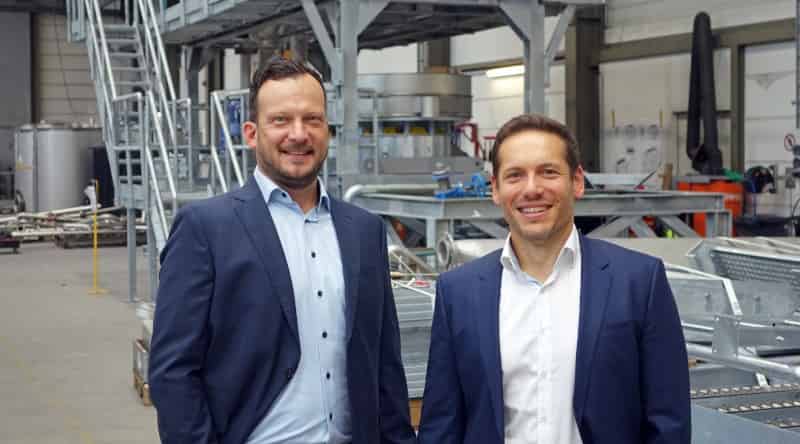
EPBP Unveils Design Guidelines for Recyclable ‘Food Grade’ Opaque White PET Bottles
The inclusion of opaque white PET beverage bottles in the European Commission’s targets underscores the industry’s dedication to a more sustainable future. The European PET Bottle Platform (EPBP) has introduced comprehensive “design guidelines” for ensuring the recyclability of food-grade opaque white PET bottles. It is anticipated that these guidelines will offer invaluable support to Europe’s mechanical recycling sector for plastics.
These guidelines serve to provide structure and promote dedicated PET bottle streams, thereby safeguarding the quality and safety of both opaque white and clear PET beverage bottle recycling processes. This initiative advances the circular economy by advocating for material recycling within the same application and enhancing the overall value of each recycling stream. Bio-based polymers
Through their active efforts to boost the utilization of recycled PET, the mechanical recycling industry for plastics plays a pivotal role in waste reduction and minimizing the environmental footprint of plastics. By aligning with the European Commission’s targets and fostering circularity within the industry, participants in the PET value chain are actively contributing to a more sustainable future.
For more information, visit www.petcore-europe.org.



